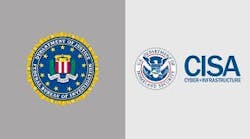BALTIMORE_Johns Hopkins University will lead a consortium of institutions that will study how to prepare for and respond to large-scale disasters and terror attacks, federal officials announced Monday.
A $15 million (€12.8 million), three-year grant will establish The Center for the Study of High Consequence Event Preparedness and Response, one of a number of Homeland Security Centers of Excellence nationwide, Homeland Security Secretary Michael Chertoff announced.
The center, to be headed by the Johns Hopkins Office of Critical Event Preparedness and Response created shortly after the Sept. 11, 2001 terror attacks, will help "strengthen the nation's ability to prevent and, where necessary, effectively manage high-consequence disasters or terrorist attacks," Chertoff said in a statement.
Deterrence, prevention, preparedness and response to large-scale incidents will be studied. The use of models and simulations and how they can help in areas such as decision-making and risk assessment will be a focus of the center, Chertoff said.
The new center joins centers already headed by the University of Maryland, Texas A&M, the University of Southern California, the University of Minnesota and Michigan State University. The University of Maryland heads the Center for Behavioral and Social Research on Terrorism and Counterterrorism.
The other centers study such issues as food security, economic impact, animal-based diseases and microbial risk.
The use of models and simulations to help in risk management and decision-making will be a focus of the center's 90 investigators, who are spread over eight states and the District of Columbia, center officials said.
Chertoff pointed to recent changes in airline security measures as an example of the need to constantly adapt to an ever-changing security environment.
"I don't mean to suggest that these decisions are ever easy. What I do mean to suggest is that a philosophy of decision-making based on risk management is one that requires a kind of tough-minded, disciplined and empirically supported view of what the facts in the real world are," Chertoff told researchers crowded into an auditorium to hear the announcement.
On Friday, the Transportation Security Administration announced that airline passengers soon will be allowed to carry small scissors and some sharp tools onto planes. However, screeners will conduct more thorough pat-downs and other extra security checks. The changes are aimed at finding explosives, which the agency considers a greater threat.
Scissors, small knives and other sharp objects were prohibited after the Sept. 11, 2001 attacks in which airliners were hijacked by terrorists wielding box-cutters.
Sen. Barbara Mikulski, who was on hand for the announcement, said it was important to fund such research so "we are ready, really ready" and the "best minds are working on how we can be prepared for the worst."
"We all hope and pray there will never be another 9/11 or Hurricane Katrina," said Dr. William Brody, president of Johns Hopkins University. "If there is, however, the knowledge developed by this new center will go a long way toward assuring the best possible preparation and the most humane, coordinated effort possible to assist victims and speed recovery."
In addition to Johns Hopkins, other institutions involved with the new center are Florida A&M; the University of South Florida; Florida State University; Florida Atlantic University; the University of Central Florida, the University of Alabama (Birmingham); Morgan State University; the University of Buffalo; the American Red Cross; the Brookings Institute; Loma Linda University; the University of South Dakota; Tuskegee University; the University of Alabama College of Communications; Jacksonville State University; Oregon Health and Science University; the University of Rochester Medical Center; the Denver Health and Medical Center; the Maryland Medical Services System; the Maryland Emergency Management Agency and the Maryland Department of Health and Mental Hygiene.
_____
On the Net:
Homeland Security Centers of Excellence _
http://www.dhs.gov/centersofexcellence

